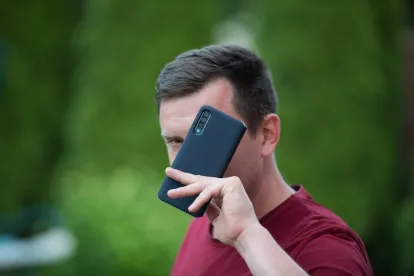We recently discussed the Telephone Consumer Protection Act’s (TCPA) exemption for autodialed calls, prerecorded messages, and text messages made for emergency purposes and what the exemption means for businesses who need to communicate with employees and consumers about issues related to the Coronavirus. Today, we address the other side of this equation: how state laws may restrict a business’s ability to continue making telemarketing calls or sending telemarketing text messages during a declared state of emergency.
In the past week, COVID-19, more commonly referred to as the Coronavirus, has had a major impact on our communities and businesses. As new cases are reported each day, various measures are taken in an attempt to slow the spread of the virus. Almost every US state has declared a state of emergency. From a business perspective, this raises concerns about appropriate telemarketing practices during this time. At present, however, we have only seen limited instances of state laws disrupting telemarketing calls.
New York
Governor Andrew Cuomo declared a state of emergency in New York on March 7, 2020 in response to the Coronavirus. In New York, it is unlawful for any telemarketer to “knowingly make an unsolicited telemarketing sales call to any person in a county, city, town or village under a declared state of emergency or disaster emergency….” NY CLS Gen. Bus. §§ 399-pp, 399-z. These provisions are intended to provide protections for residents of the state and others against telemarketing abuses.
Under both Section 399-pp and 399-z, “telemarketing” does not include the solicitation of sales “through any media other than by telephone calls”. Whether this includes text messages has not yet been decided. The ban is not limited to automated calls. The ban is, however, limited to unsolicited calls. Under Section 399-z, unsolicited calls do not include calls made (1) “in response to an express written or verbal request by the customer,” or (2) “in connection with an established business relationship….” Section 399-pp does not define “unsolicited calls” but does provide a list of acts or practices that are exempt from its requirements.
Section 399-pp exempts telephone calls made to collect a legal debt in accordance with the Federal Fair Debt Collection Practices Act (15 U.S.C. § 1692 et. seq.); telephone calls in which a payment/authorization of payment for goods or services is not required until a telemarketer makes a face-to-face presentation or a telemarketer and customer meet; telephone calls initiated by a customer without solicitation by a telemarketer; and telephone calls between any for-profit business and a telemarketer, except “calls involving the retail sale of nondurable office or cleaning supplies.”
Louisiana
In Louisiana, there is a statutory prohibition that prevents telephonic solicitors from engaging in telephonic solicitation “during a state of emergency as declared by the governor,” with some exceptions. La. R.S. § 45:844.31. These exceptions include, but are not limited to, calls made (1) in connection with an outstanding debt or contract, (2) in response to an express request of the person called, and (3) to any person with whom the telephonic solicitor has an existing business relationship. Unlike New York’s provision, Louisiana’s act is not limited to telephone calls but includes “any voice or data communication made by a telephonic solicitor.” Further, Louisiana’s prohibition is limited to calls made to a “residential telephonic subscriber.” However, the restrictions on telephonic solicitation have not yet been put into effect in response to the Coronavirus public health emergency.
While Governor John Bel Edwards declared a public health emergency in Louisiana on March 11, 2020 in response to the Coronavirus, the prohibitions on telephonic solicitation do not become effective until the Louisiana Public Service Commission (LPSC) has a mandatory presence in the Governor’s Office of Homeland Security and Emergency Preparedness (GOHSEP). We confirmed that as of March 19, 2020 this has not been triggered yet, therefore the telephonic solicitation restrictions are not in effect.
In the case that a state of emergency has been declared that requires a shutdown of solicitation, the LPSC will circulate emails to emergency contacts provided by businesses throughout the state informing them of the restriction. In addition to sending out emails, the LPSC updates their website to reflect the same information that has been provided in the emails. This webpage is always kept up to date.
West Virginia
West Virginia has legislation that implements criminal penalties for “using automated telephone calls to disseminate false, misleading or deceptive information regarding matters effecting or effected by a proclaimed state of emergency or state of preparedness.” W. Va. Code § 15-5-19b. On March 16, 2020, Governor Jim Justice declared a state of emergency in West Virginia in response to the Coronavirus.
West Virginia’s prohibition is limited to automated calls and only restricts “false, misleading or deceptive information” and not telemarketing in general. Each call made in violation of this section constitutes a separate violation, the penalty of which can be confinement in jail for not more than one year or a fine of not more than $5,000, or both.




 />i
/>i

